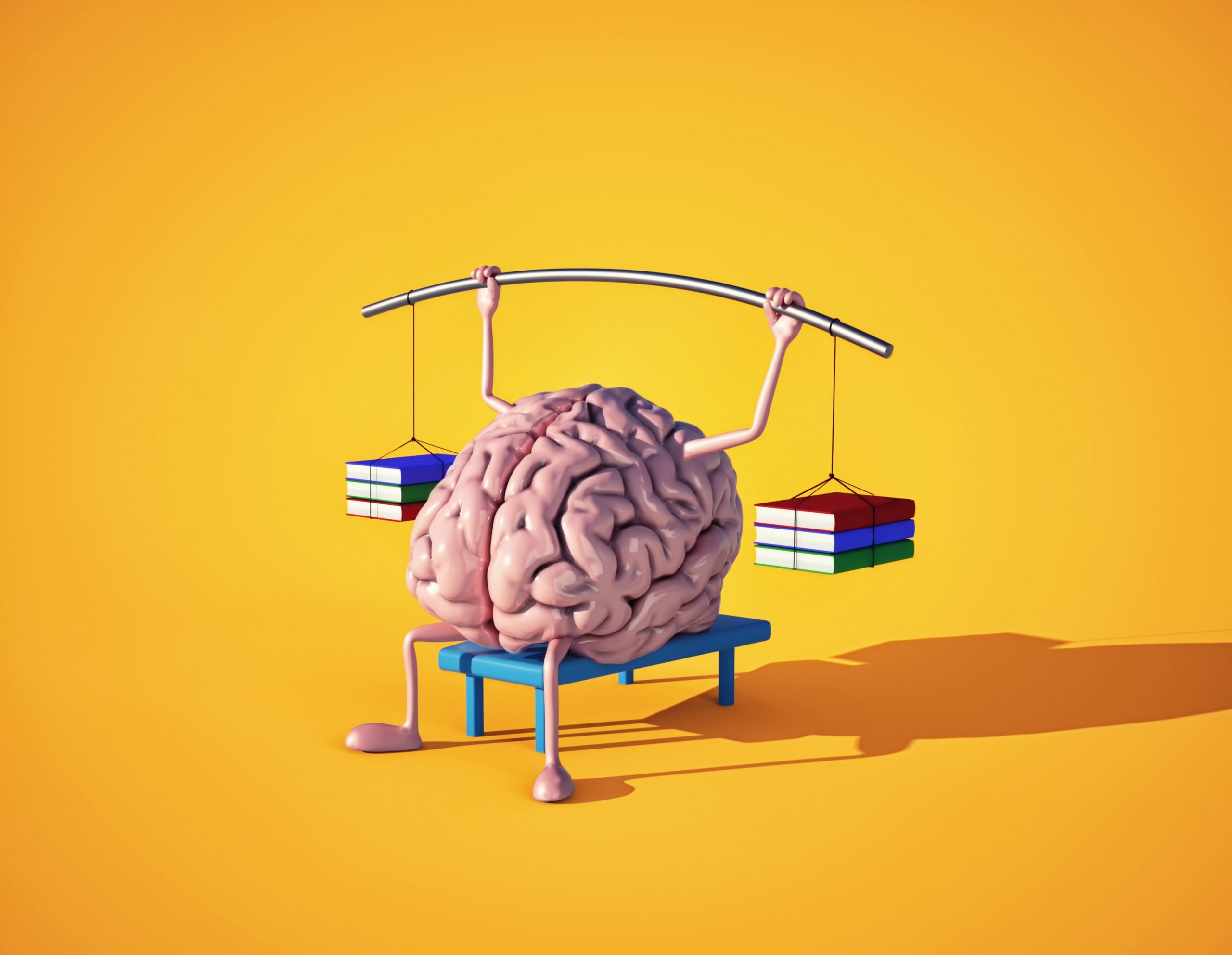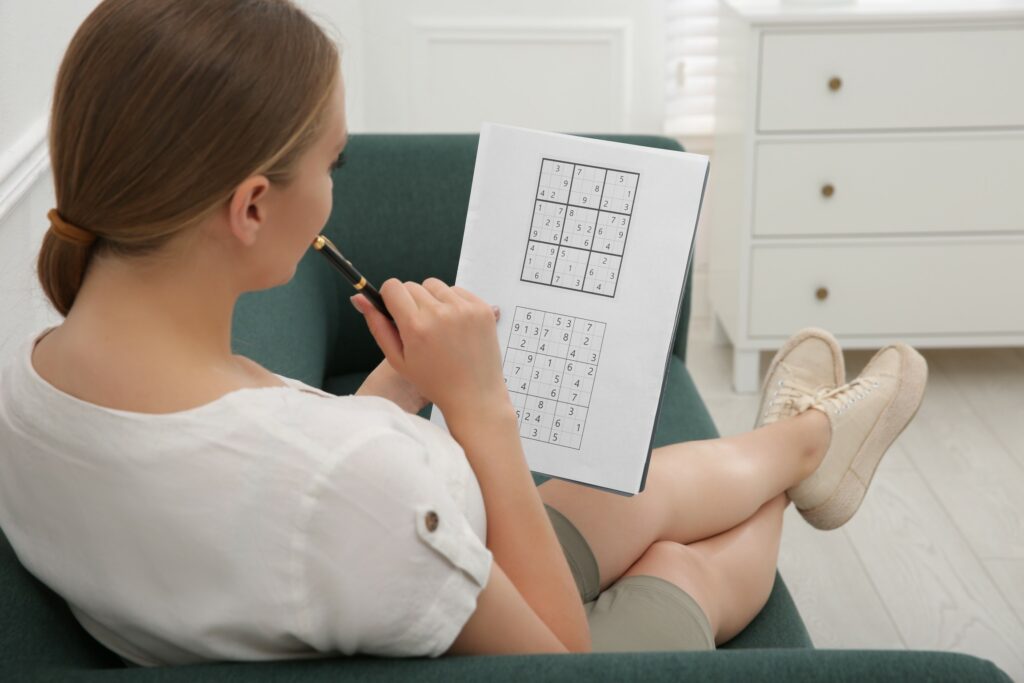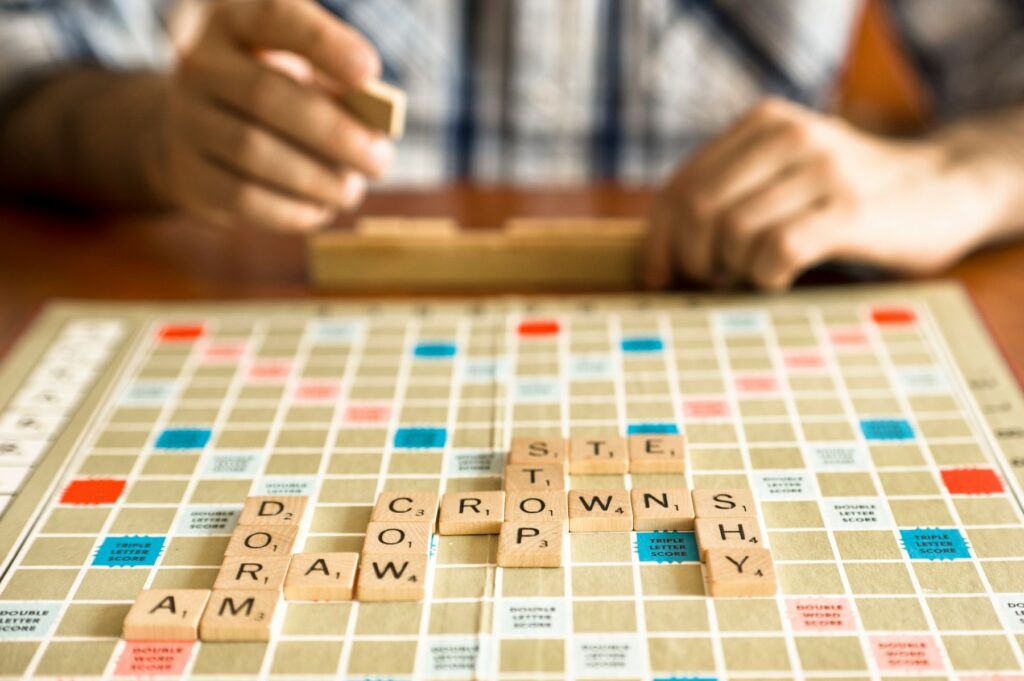How a Rainy Night and Beyoncé Kept DC Metro Running
August 9, 2023
In the captivating world of music and entertainment, artists wield a unique power that extends beyond the boundaries of the stage, leaving an indelible mark on the hearts and minds…

International Brain Awareness Week landed in March this year — and it’s a great reminder to focus on improving our cognitive function for people of all ages. Whether you’re a student studying for exams, an adult looking to stay sharp, or a senior citizen wanting to stay mentally active, there are plenty of fun brain games and activities that can help you boost your cognitive function. From memory improvement strategies to problem-solving exercises, there are a variety of brain games and cognitive tools that you can start doing today and can help you improve your mental abilities. We’ll explore some of the best brain games and activities to try, so you can keep your mind sharp and your cognitive function at its peak.
Brain games and cognitive tools are activities and strategies designed to help improve mental functioning and cognitive skills. They can range from simple memory exercises and brain teasers to complex problem-solving activities. By engaging in these activities, people can improve their memory, focus, problem-solving skills, creativity, language, and critical thinking. Brain games and cognitive tools are important because they can help people stay sharp and alert, even as they age. They can also help people become more productive in their daily lives by improving their mental functioning and cognitive skills.
Memory improvement strategies are techniques and tools used to help people remember information more effectively. These strategies can include mnemonic devices, such as acronyms or rhymes, visual cues, such as diagrams or pictures, and repetition, such as repeating information aloud. Other memory improvement strategies include chunking, which involves breaking down large pieces of information into smaller, more manageable pieces, and elaborative rehearsal, which involves connecting new information to existing knowledge. For example, if you wanted to remember the names of the planets in order, you could use an acronym such as “My Very Educated Mother Just Served Us Nine Pizzas” to help you remember.
Some simple memory improvement games you can do on your own are memorizing lists, flashcards, and trivia games. For a more challenging memory-focused game, try the Memory Matrix Game — a fun and engaging game that requires you to remember the locations of various items on an 8×8 matrix board.
Brain health games are activities specifically designed to promote brain health. These games can include puzzles, word games, trivia, and problem-solving activities. For example, crosswords are a great way to exercise your brain and improve your memory. Similarly, Sudoku is a popular game that helps people hone their logical thinking skills. There are also apps such as BrainHQ and Lumosity that offer scientifically designed brain games to help you train your mind and improve your cognitive function. Other brain health games include tangrams, chess, Go, and card games such as solitaire and bridge.

Mental math techniques are strategies used to perform mathematical calculations in one’s head, without the use of paper or a calculator. These techniques can be used to quickly and accurately solve math problems and can be especially useful for students studying for math exams. Examples of mental math techniques include memorizing multiplication tables, using the commutative property to simplify calculations, breaking down large numbers into smaller parts, reducing a series of fractions, and using estimation to check the accuracy of an answer. Mental math techniques can also be used to solve complex equations, such as quadratic equations, by using a combination of techniques such as factoring and completing the square.
Mental math techniques can range from beginner-level to advanced, and it is important to practice regularly in order to maintain and improve your mental math skills. You can use online resources such as Khan Academy’s Mental Math course or apps such as Math Mastermind to help hone your skills.
Visualization techniques are another effective way to improve cognitive skills and increase problem-solving abilities during International Brain Awareness Week. It involves using mental imagery to create a mental picture of a desired outcome or goal. Visualization techniques can be used to improve memory, focus, and concentration, as well as to increase creativity and problem-solving skills. For example, when trying to remember a list of items, you can visualize each item in a specific location, such as a room in a house. You can also use visualization techniques to practice a skill, such as a sport or a language. By visualizing yourself performing the skill, you can improve your performance and increase your confidence. Visualization techniques can also be used to create a mental picture of a desired outcome, such as a successful business or a healthy lifestyle. By visualizing the desired outcome, you can create a plan of action to achieve it.
Creative thinking exercises are activities designed to help you think outside the box and come up with innovative solutions to problems. These exercises can involve brainstorming, mind mapping, and other techniques that encourage creative problem-solving. Examples of creative thinking exercises include writing a story with a random set of words, drawing a picture with a limited set of colors, or coming up with a list of ideas for a new product or service. By engaging in creative thinking exercises, you can develop your ability to think creatively and come up with creative solutions to problems.
Another great way to improve your language skills and increase your vocabulary are through language and vocabulary games. These games can be fun and engaging and can help you learn new words and understand the nuances of language. Examples of language and vocabulary games include crossword puzzles, word searches, Scrabble, Boggle, and Hangman. These games can help you practice spelling, grammar, and sentence structure, as well as increase your knowledge of words and their meanings. Language and vocabulary games can also help you become more confident in your ability to communicate effectively.

Speed reading and comprehension exercises are designed to help you read faster and understand more of what you read. These cognitive function exercises involve techniques such as skimming, scanning, and chunking, which can help you read faster while still understanding the material. For example, skimming involves quickly reading the text to get the main idea, scanning involves looking for specific words or phrases, and chunking involves breaking down large sections of text into smaller pieces. With practice, these techniques can help you read more quickly and comprehend more of what you read.
Logical reasoning and critical thinking exercises are activities designed to help people develop their ability to think logically and critically and are a great addition to the list of ideas for Brain Awareness Week. These exercises involve analyzing information, making deductions, and forming conclusions based on the evidence presented. They can help people develop problem-solving and decision-making skills, as well as improve their ability to think critically and logically. Examples of logical reasoning and critical thinking exercises include puzzles, riddles, and logic games. These activities can help people become more aware of their own thought processes and develop the ability to think more logically and critically.
Mind mapping and conceptualization exercises are yet another proven way to improve your cognitive skills. They involve creating visual diagrams that help you organize and structure your thoughts, ideas, and concepts. Mind mapping can help you break down complex topics into smaller, more manageable chunks and make connections between different ideas. Examples of mind-mapping exercises include creating a spider diagram to map out the different elements of a topic or creating a concept map to show the relationships between different concepts. Conceptualization exercises involve taking a concept or idea and exploring it in more detail, such as by creating a storyboard or flowchart. These exercises can help you gain a better understanding of a concept and can also help you develop creative solutions to problems.
There are a number of apps and online tools available that are designed to help you improve your cognitive skills. These digital tools can be used to create personalized learning plans, track progress, and provide feedback on performance. Examples of brain training apps and online tools include BrainHQ, Lumosity, Elevate, Cognifit, and Peak. By using these digital tools you can engage in a variety of activities designed to improve your memory, focus, and problem-solving skills. Additionally, these apps can also provide detailed analytics on your performance so you can track your progress and identify areas where you need to improve.

Brain training exercises are an important part of keeping our brains healthy and functioning at their best. Incorporating brain health activities can be a great way to gain more knowledge about our brains and how to keep them healthy. There are many types of games and exercises that you can use to improve your cognitive skills, such as speed reading and comprehension exercises, logical reasoning and critical thinking exercises, mind mapping and conceptualization activities, and brain training apps and online tools. By taking the time to engage in these activities, you can improve your overall brain health and become more aware of your own thought processes.